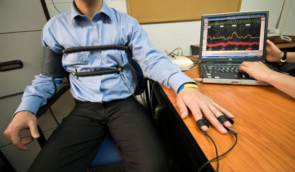How Ukraine should act to protect people affected by the war: 13 key steps for the state in 2025
On 21 January 2025, a coalition of organisations that have been working since 2014 to protect the rights of victims of armed aggression against Ukraine presented 13 priority steps for the Ukrainian state in 2025 to protect human rights in times of war. These actions, according to human rights defenders, will ensure a predictable policy of support for people affected by the war, achieve justice and make the state’s actions more effective.
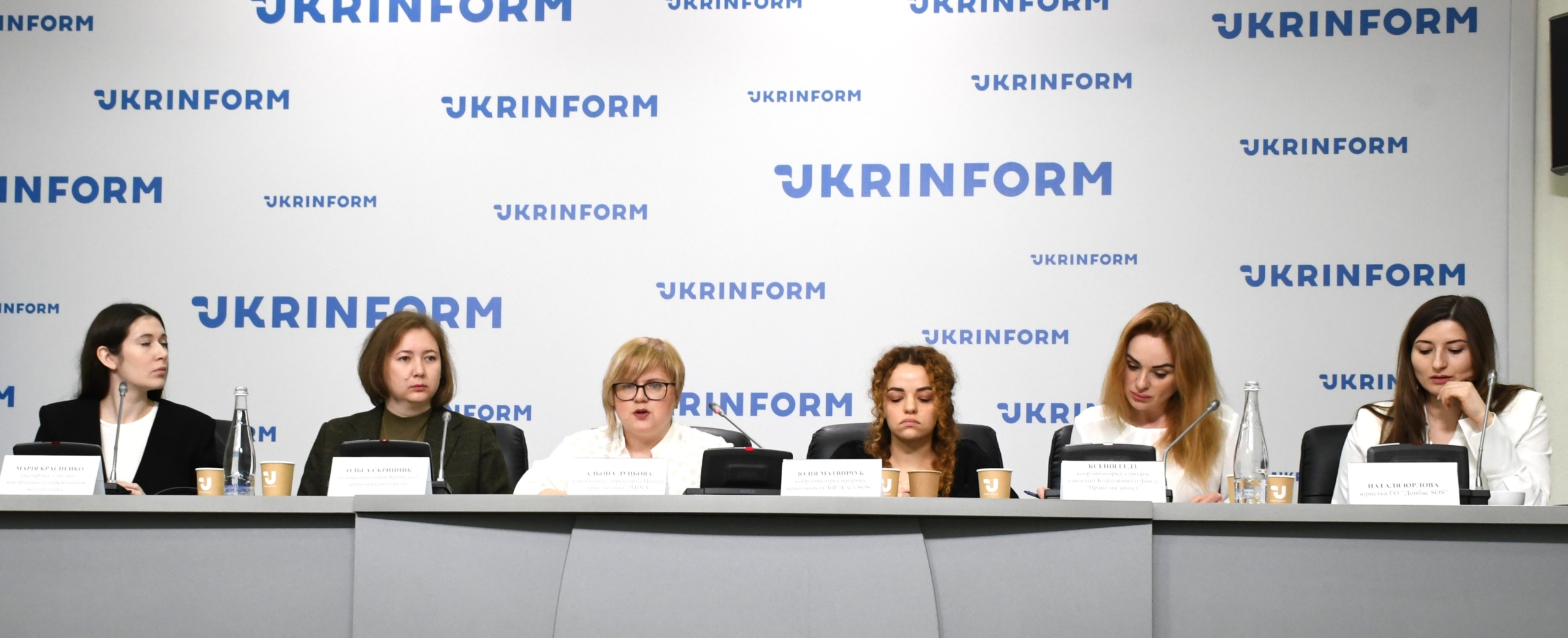
Ukrainian human rights defenders stressed that overcoming the consequences of the war, which began with the occupation of Crimea in 2014 and became full-scale in 2022, and the hostilities, shelling of Ukrainian settlements and energy infrastructure, which continue in 2025, require further joint action by the state, civil society, and international partners.
Alena Lunova, the Advocacy Director of the Human Rights Centre ZMINA, stressed that there is a need to harmonise national criminal legislation with international law and to amend the Criminal Code of Ukraine to ensure full implementation of the provisions of the Rome Statute of the ICC.
“In addition to the changes that should facilitate prosecution for international crimes, it is important to talk about other changes to criminal law. In particular, we are talking about the article on collaborative activity. It is worth clarifying the wording of the article itself and considering the possibility of removing the least serious category of violations from the criminal justice system and ensuring lustration measures,” Lunova said.
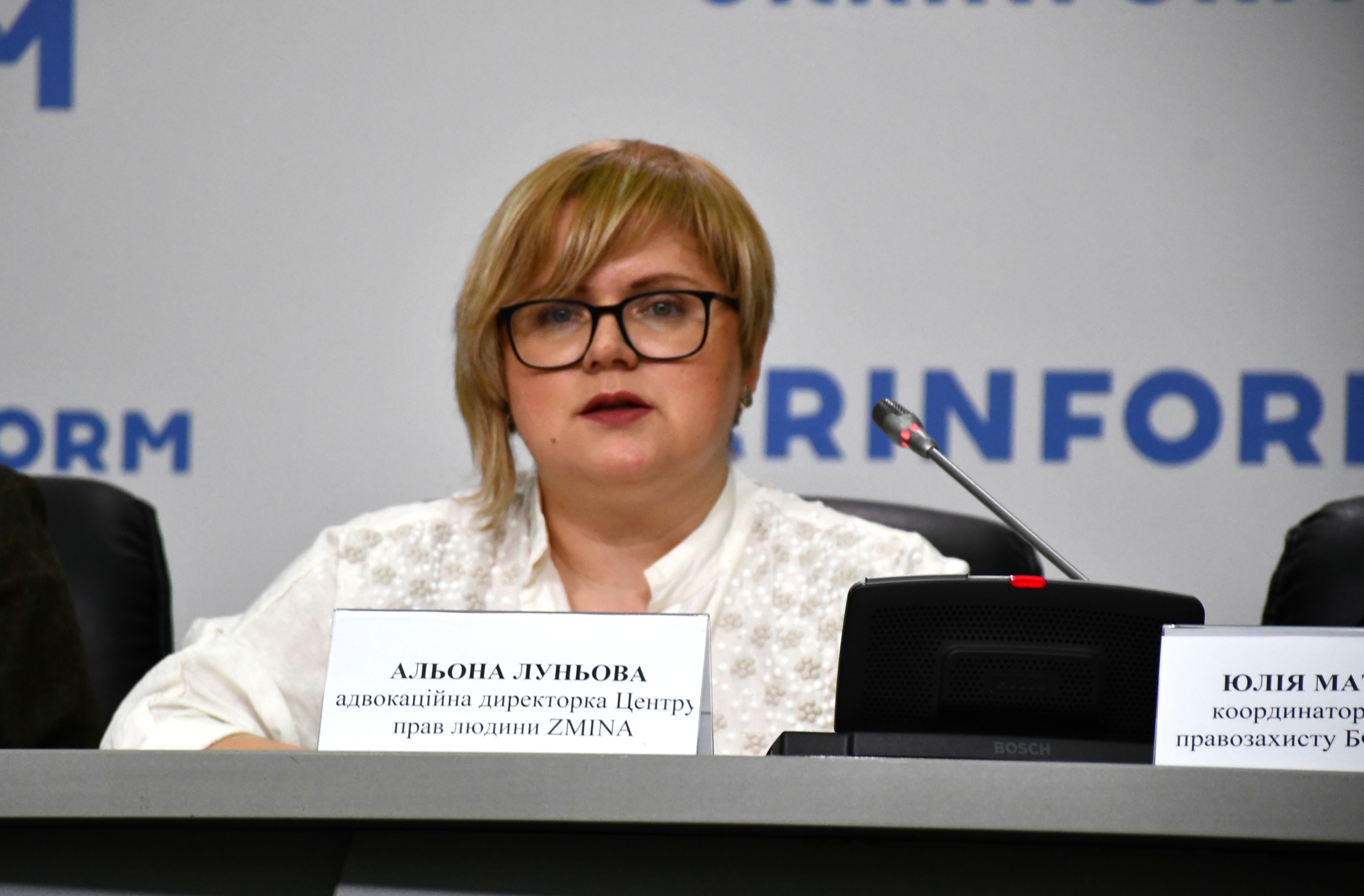 Alena Lunova
Alena LunovaIn addition, the experts emphasise the need to protect Ukrainian citizens living in the occupied territories from the risk of losing their citizenship, as well as to develop mechanisms for the use of documents issued by the occupation authorities.
Effective compensation for affected persons
Kseniia Hedz, Advocacy Coordinator of the CF Right to Protection, reiterated the need for transparent mechanisms of compensation for destroyed or damaged property. “The armed terror of the aggressor country requires urgent and decisive action from us. The state needs to ensure the effective functioning of mechanisms for accounting and compensation for destroyed, damaged, and illegally appropriated immovable and movable property by the occupation “authorities” while eliminating discriminatory approaches related to the time and territory of the damage. Only such an inclusive approach will guarantee equal and fair access to national and international compensation mechanisms for all affected. It is extremely important to introduce a comprehensive and holistic system of support for all those affected by the armed aggression against Ukraine, as this is the key to protecting and restoring the rights of the affected population,” Kseniia Hedz emphasised.
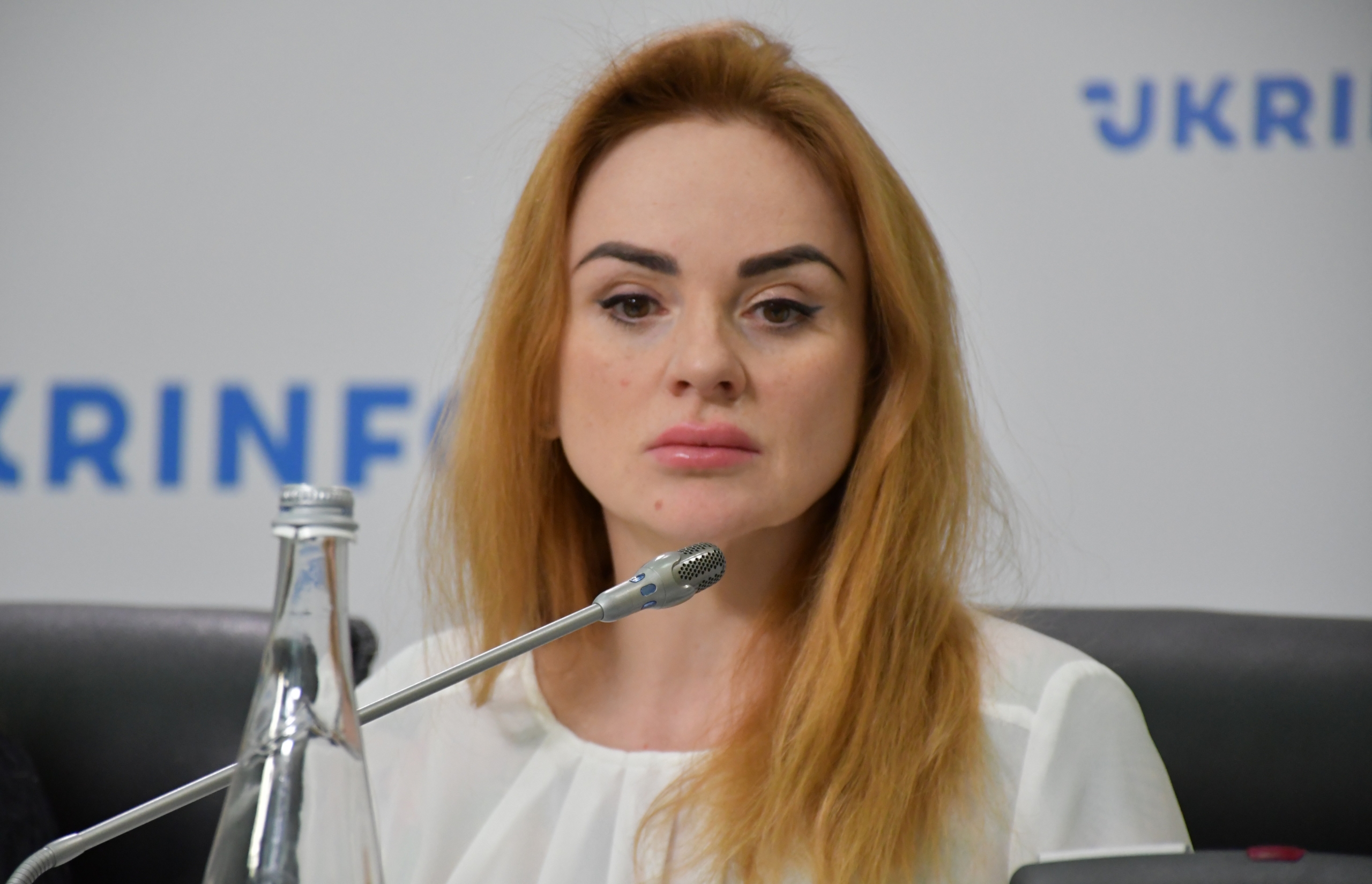 Kseniia Hedz
Kseniia HedzReintegration and support for the most vulnerable
Olha Skrypnyk, Head of the Board of the Crimean Human Rights Group, noted that the governmental changes of 2024, namely the renaming of the Ministry of Reintegration to the Ministry of National Unity of Ukraine and the transfer of powers over many categories of affected persons to the Ministry of Development, had a significant impact on policy-making.
“For example, the ministry used to be in charge of reintegration, but now it has been narrowed down to a directorate within the Ministry of Development. A significant number of previously developed strategies to protect the interests of the affected persons are now on hold. We are also waiting for the Interdepartmental Commission to resume its work on establishing the fact of deprivation of personal liberty as a result of armed aggression against Ukraine, which should soon begin its meetings at the Ministry of Development. Today, we do not have a single ministry that takes care of the residents of the occupied territories and people affected by the aggression, which is why we see the need to prioritise the reintegration of the residents of the occupied territories, support for IDPs and all victims of the armed aggression against Ukraine,” said Skrypnyk.
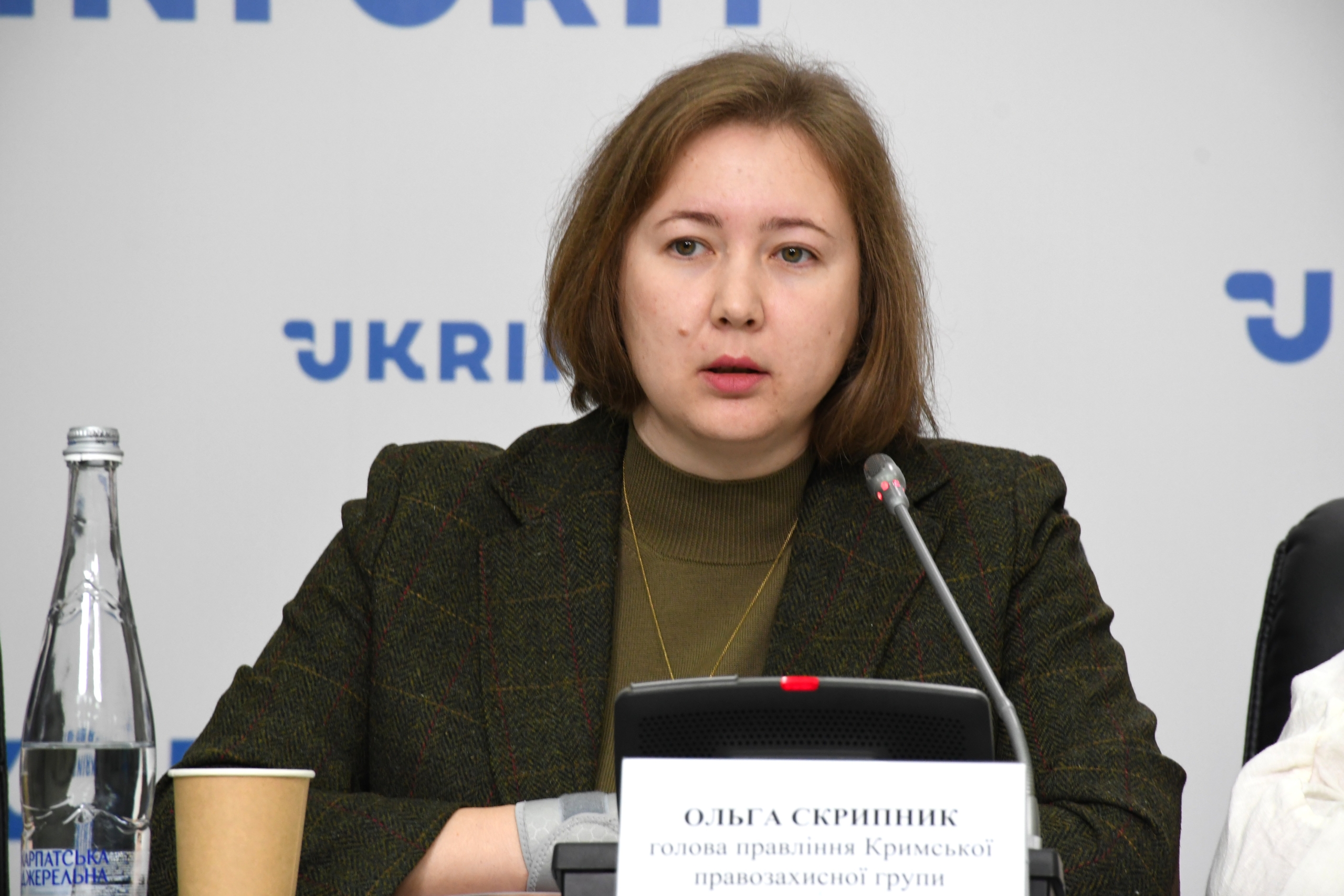 Olha Skrypnyk
Olha SkrypnykYuliia Matviichuk, Human Rights Coordinator of CF EAST SOS, stressed the need to create places for people with disabilities and the elderly: “Today we are talking not only about places to accommodate evacuees – we are talking about dignity and care. During the war, it is important not to neglect those who need support the most: people with disabilities and the elderly. We need to create places to accommodate these people right now to prevent a humanitarian catastrophe. At the same time, Ukraine needs to define what it means to be a state for each of its citizens, regardless of whether they live in government-controlled territory or under occupation. We must build bridges, not leave gaps.“
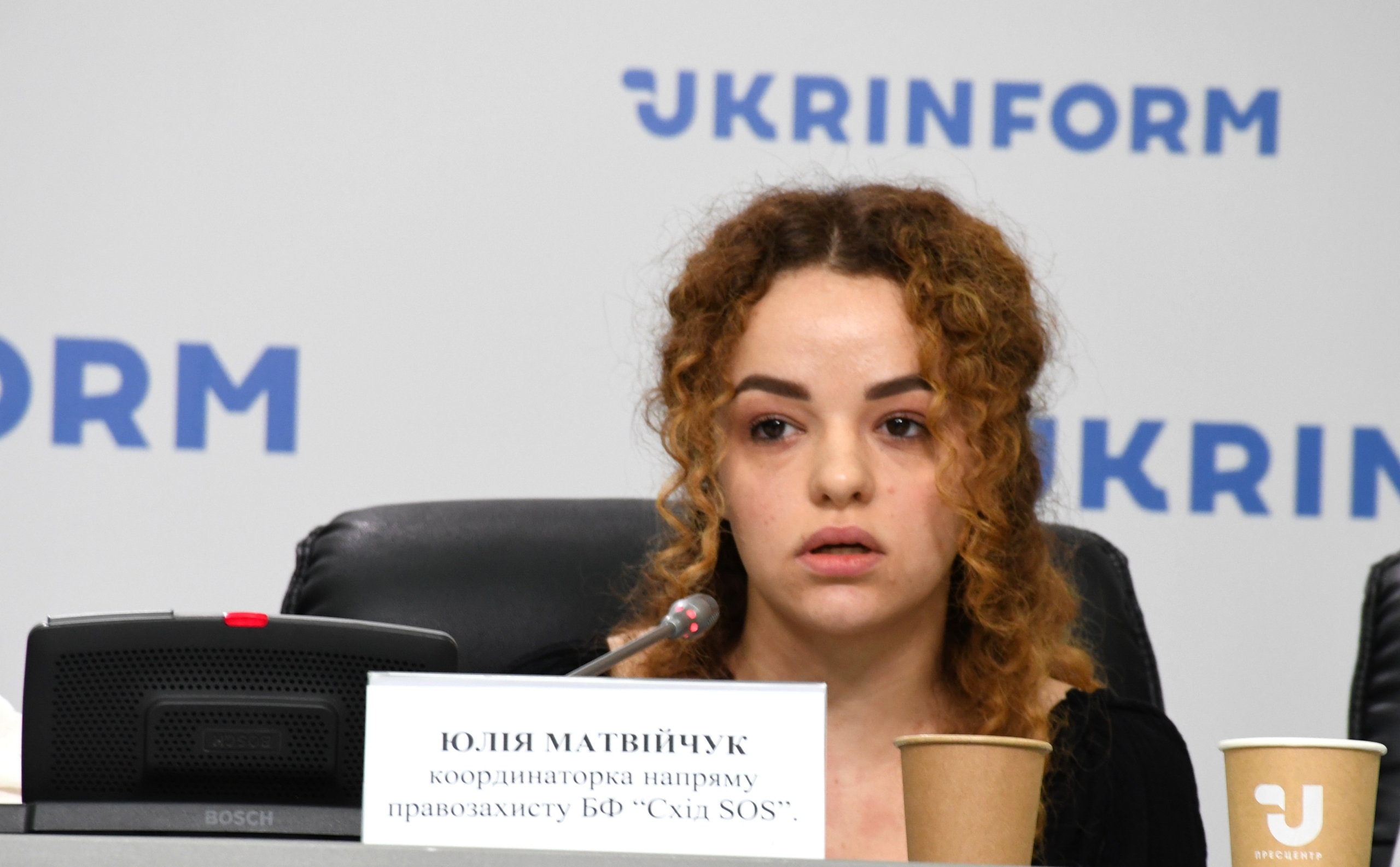 Yuliia Matviichuk
Yuliia MatviichukPensions for internally displaced persons
Nataliia Yurlova, Lawyer of NGO Donbas SOS, stressed the importance of paying pensions to IDPs: “It is important to eliminate discrimination in the payment of pensions to internally displaced persons who moved before 24 February 2022. Pensions are the only source of income for many of them. However, we still face discrimination in this regard. Since 2014, additional requirements have been introduced for IDPs to receive pensions: a mandatory certificate of registration, periodic identification, and restrictions on the choice of a banking institution. At the same time, those who displaced after 24 February 2022 receive pensions under general conditions. This creates inequality, which is unacceptable. The Cabinet of Ministers’ Resolution No. 637, which enshrines these restrictions and has been in force for more than 10 years, must finally be cancelled.“
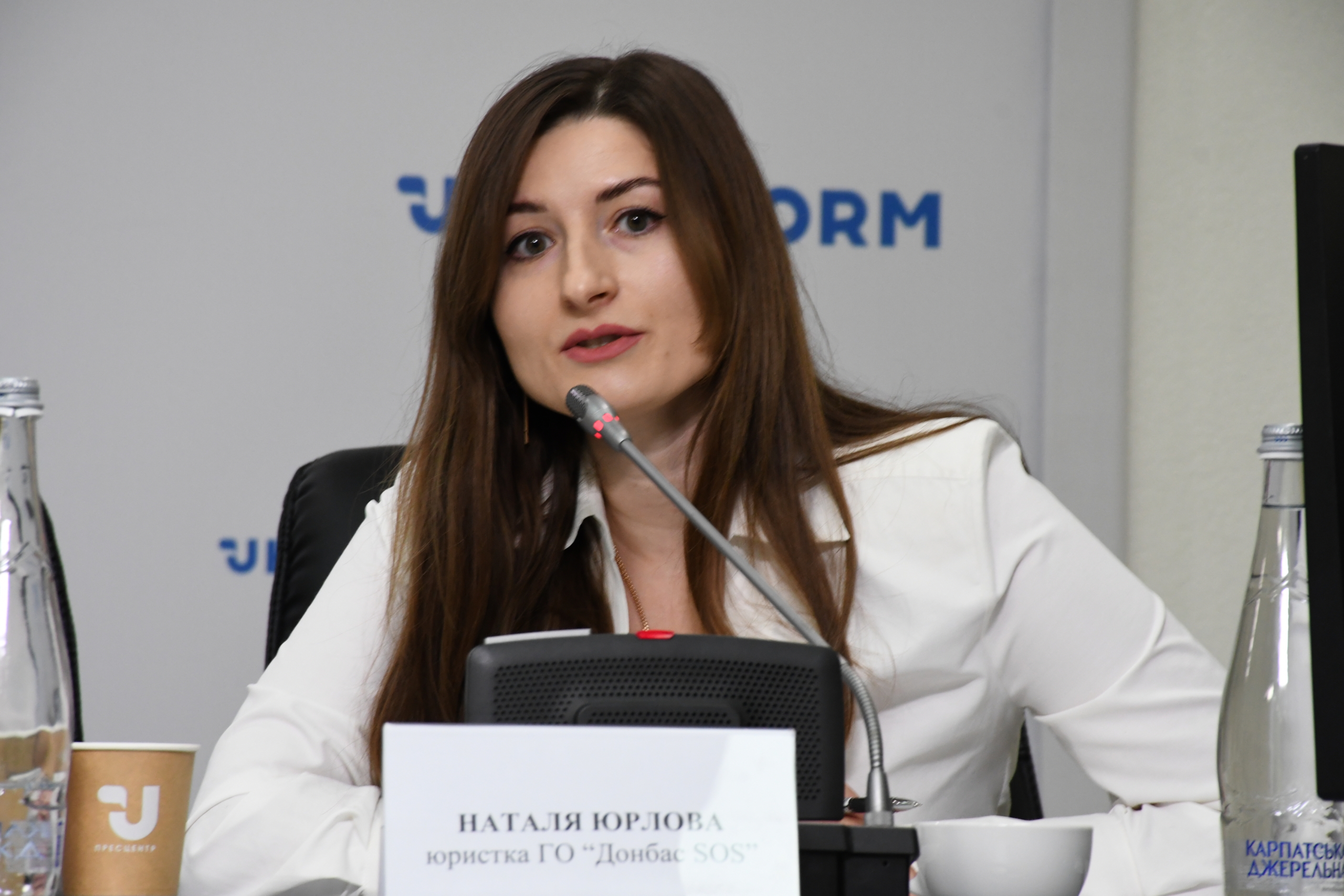 Nataliia Yurlova
Nataliia YurlovaFor reference
The Coalition of organisations dealing with the protection of the rights of victims of armed aggression against Ukraine since 2014 includes: the Human Rights Centre ZMINA, NGO Donbas SOS, NGO Crimea SOS, CF Right to Protection, CF EAST SOS, NGO Civil Holding GROUP OF INFLUENCE, CF Stabilization Support Services, Crimean Human Rights Group.
Read more about the 13 steps for 2025 on the website of the Human Rights Centre ZMINA.
You can watch the video of the event here.
The event has been funded by UK International Development from the UK Government; the views expressed do not necessarily reflect the official position of the UK Government.
If you have found a spelling error, please, notify us by selecting that text and pressing Ctrl+Enter.




